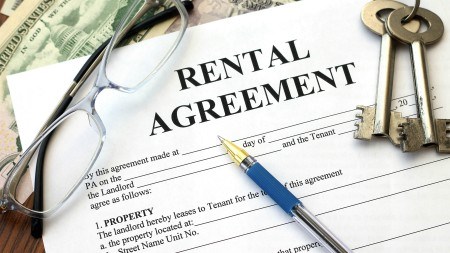Non-payment of rent is a breach of the rental contract. This is how landlords and tenants should approach the issue.
In the residential rental space, there are often stories of landlords locking tenants out for non-payment of rent or electricity. With regards to the law, landlords and letting agents are not allowed to do this. Nonetheless, it is important that tenants keep their rent up to date at all times.
“If a tenant is late with their rent, we advise our agents to take action quickly, so that the tenant understands that rental is a business arrangement, and lapses will not be tolerated,” says Paul Stevens, the CEO of Just Property.
He says that if a tenant does not pay their rent or utilities bill by the first of the month - or whatever has been stipulated in the lease agreement - the agent or landlord should immediately make a phone call or send an email to find out what the reason is. There is no grace period. Thereafter, usually within seven days they should send a letter to the tenant informing them of the breach by registered mail, email or personal delivery and that they have 20 business days to make payment, or else the lease may be cancelled.
“If the tenant fails to adhere to the letter of breach once the lease has been cancelled or if they fail to vacate the premises on said date, legal representation will be required to take further legal action, which would include an eviction order,” says Stevens.
He also explains that the tenant may not instruct the landlord or agent to use their deposit to cover the last month’s rental. “The deposit serves a specific function, which is to cover any costs of damages when the property is vacated. If the landlord is forced to use the deposit to cover outstanding rent, then the deposit immediately becomes owing and having utilised the deposit for rental would mean there not be the required funds to cover outstanding utilities and damage to the property.”
However, while the landlord may take legal action that may ultimately amount to eviction, there are things that they cannot do until this process has played out. “Under the Rental Housing Act of 50 1999 (RHA), it is unlawful and a criminal offence for a landlord to cut off electricity or water, to change locks(without providing the new keys), to seize goods(without a court order), to intimidate or to obstruct a tenant’s entry into the property in any way,” Stevens says.
At the same time, however, if there are any disputes or issues, the tenant must continue paying rental as set out in the lease agreement, until such time as the dispute is resolved. “Both parties are responsible for keeping their end of the bargain as covered in the lease and as set out in the RHA,” says Stevens.
He says that tenants that have been treated unfairly by their landlords or letting agents should approach the Rental Housing Tribunal, an independent body appointed by the MEC in terms of the Rental Housing Act to resolve disputes between landlords and tenants. The tribunal has the power to summon a landlord or tenant to a mediation or hearing, and provides this service at no charge to landlords, tenants and property managers.
If you, as a tenant, are faced with circumstances that make it impossible to pay your rent on time, the most important thing you can do is communicate. “Unforeseen circumstances do occur and we believe that each situations should be assessed independently, and based on its merits,” says Stevens. “Communication and forming a good relationship with your landlord is a key factor in an ongoing and mutually beneficial relationship.”




